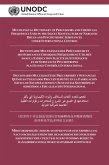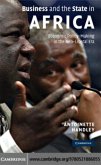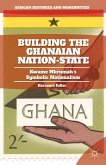How do governments in Africa make decisions about language? What does language have to do with state-building, and what impact might it have on democracy? This manuscript provides a longue duree explanation for policies toward language in Africa, taking the reader through colonial, independence, and contemporary periods. It explains the growing trend toward the use of multiple languages in education as a result of new opportunities and incentives. The opportunities incorporate ideational relationships with former colonizers as well as the work of language NGOs on the ground. The incentives relate to the current requirements of democratic institutions, and the strategies leaders devise to win elections within these constraints. By contrasting the environment faced by African leaders with that faced by European state-builders, it explains the weakness of education and limited spread of standard languages on the continent. The work combines constructivist understanding about changing preferences with realist insights about the strategies leaders employ to maintain power.
Dieser Download kann aus rechtlichen Gründen nur mit Rechnungsadresse in A, B, BG, CY, CZ, D, DK, EW, E, FIN, F, GR, HR, H, IRL, I, LT, L, LR, M, NL, PL, P, R, S, SLO, SK ausgeliefert werden.









